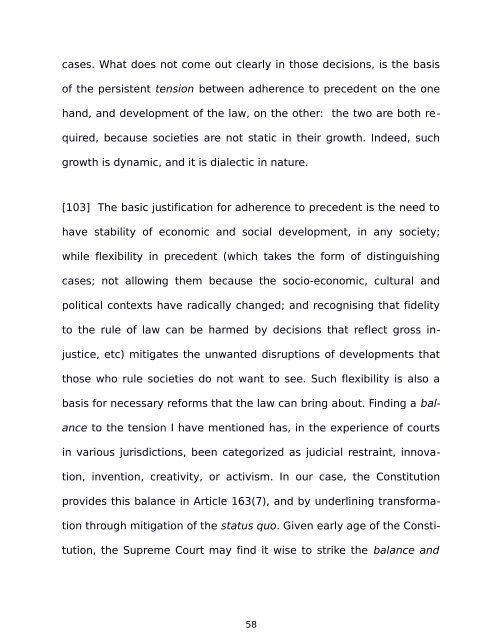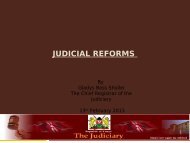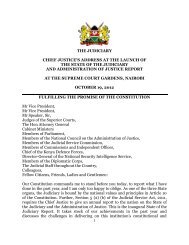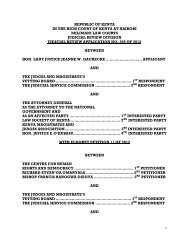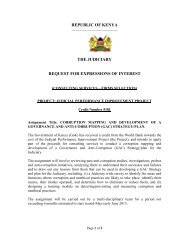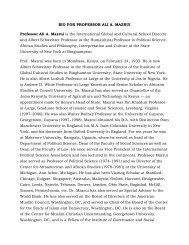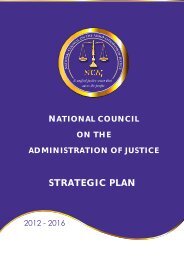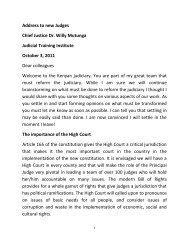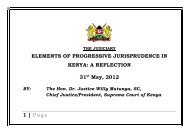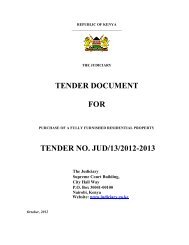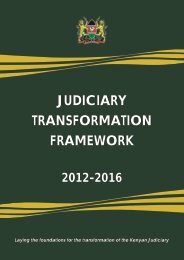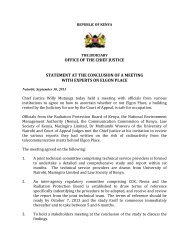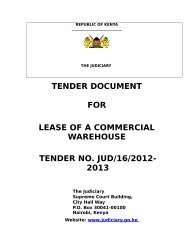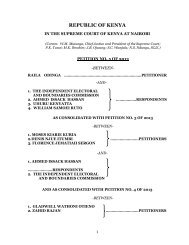REPUBLIC OF KENYA - The Judiciary
REPUBLIC OF KENYA - The Judiciary
REPUBLIC OF KENYA - The Judiciary
You also want an ePaper? Increase the reach of your titles
YUMPU automatically turns print PDFs into web optimized ePapers that Google loves.
cases. What does not come out clearly in those decisions, is the basis<br />
of the persistent tension between adherence to precedent on the one<br />
hand, and development of the law, on the other: the two are both required,<br />
because societies are not static in their growth. Indeed, such<br />
growth is dynamic, and it is dialectic in nature.<br />
[103] <strong>The</strong> basic justification for adherence to precedent is the need to<br />
have stability of economic and social development, in any society;<br />
while flexibility in precedent (which takes the form of distinguishing<br />
cases; not allowing them because the socio-economic, cultural and<br />
political contexts have radically changed; and recognising that fidelity<br />
to the rule of law can be harmed by decisions that reflect gross injustice,<br />
etc) mitigates the unwanted disruptions of developments that<br />
those who rule societies do not want to see. Such flexibility is also a<br />
basis for necessary reforms that the law can bring about. Finding a balance<br />
to the tension I have mentioned has, in the experience of courts<br />
in various jurisdictions, been categorized as judicial restraint, innovation,<br />
invention, creativity, or activism. In our case, the Constitution<br />
provides this balance in Article 163(7), and by underlining transformation<br />
through mitigation of the status quo. Given early age of the Constitution,<br />
the Supreme Court may find it wise to strike the balance and<br />
58


